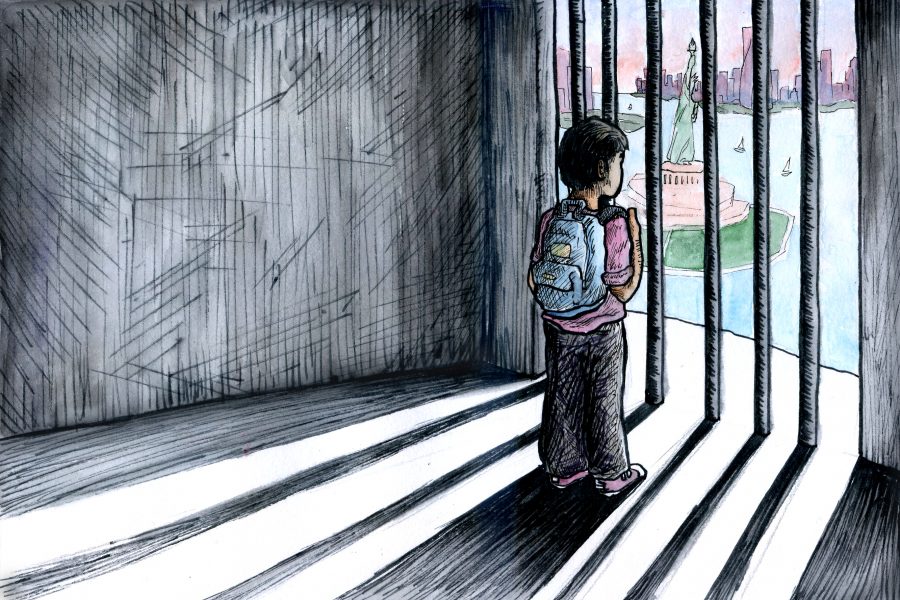Yesterday, the Trump administration officially announced the end of DACA.
Threatening hundreds of thousands of undocumented Americans with expulsion from the only country they have ever known is a new moral low for the Trump administration. The Dreamers — most of whom played no active role in their immigration — range from high schoolers preparing for college applications to college students to young professionals. Some of them have become our peers at UT.
It isn’t clear exactly how many UT-Austin students will be directly affected by this political ploy. The University does not track students’ immigration status or DACA recipients, and UTPD does not inquire about students’ status. Immigrant applicants for HB 1403, an in-state tuition affidavit, might provide a clue, but the 2016 count of 843 includes out-of-state students, transfer students and others with general undocumented status.
Even one DACA student deserves a heightened, protective response. As of now there is no way to know what impact today’s announcements will have on UT’s undocumented students — but it will be severe.
Only Congress can remedy this national failure. For Texas congressmen, reviving DACA should be a no-brainer. Analysis of DACA recipients consistently shows that they are critical members of Texas society — though making an economic distinction comes at the risk of minimizing the human consequences of this legislation. Legislators cannot forget the lives at stake in this fight. To repurpose Trump’s tweeted phrase: “Congress, get ready to do your job — DACA!”
Even as UT fights alongside other universities to keep DACA in place, we must also look toward forging a clearer path to citizenship for students lost in the purgatory of the federal immigration system. From numerous failures to pass a bipartisan DREAM Act to Tuesday’s announcement, no population has been subject to the contempt and indecision endured by young undocumented immigrants. It is time to right this wrong. Through renewed advocacy efforts targeted at Congressional members — the UT System has a federal office in D.C. — the University can do its part to help find a long-term solution.
While Congress dawdles on the fate of the undocumented, UT can also take swift action to protect its most vulnerable students. Some progress has already been made. The Longhorn Dreamers Project, under the auspices of UT’s International Office, provides support and advice to undocumented students, including pro bono legal counsel. Students, documented or not, should familiarize themselves with the resources available.
Students who cannot tell where they will be in six months —approximately two semesters —will understandably require extra mental health and academic support. Several undocumented students have cited expanded Counseling and Mental Health Center services as tangible and impactful assistance. Professors and academic departments must take a similarly active role in the classroom to help students transition, no matter where the upcoming months take them.





















